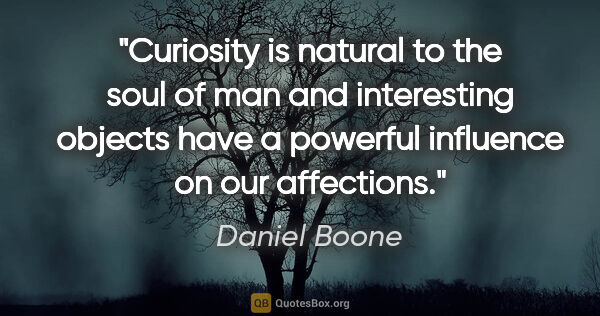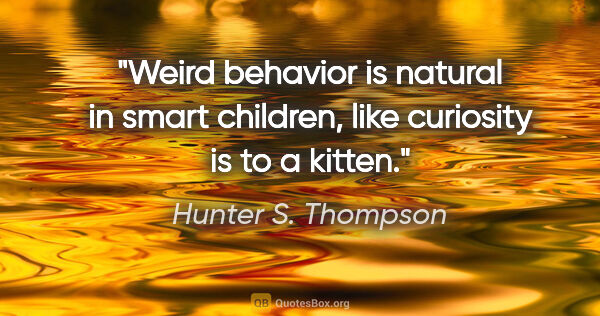Natural Curiosity Quotes
When children are very young, they have natural curiosities about the world and explore them, trying diligently to figure out what is real. As they become "producers " they fall away from exploration and start fishing for the right answers with little thought. They believe they must always be right, so they quickly forget mistakes and how these mistakes were made. They believe that the only good response from the teacher is "yes," and that a "no" is defeat.
John Holt


Teach your scholar to observe the phenomena of nature; you will soon rouse his curiosity, but if you would have it grow, do not be in too great a hurry to satisfy this curiosity. Put the problems before him and let him solve them himself. Let him know nothing because you have told him, but because he has learnt it for himself. Let him not be taught science, let him discover it. If ever you substitute authority for reason he will cease to reason; he will be a mere plaything of other people's...
Jean-Jacques Rousseau
While Newton seemed to draw off the veil from some of the mysteries of nature, he showed at the same time the imperfections of the mechanical philosophy, so agreeable to the natural vanity and curiosity of men; and thereby restored her ultimate secrets to that obscurity, in which they ever did and ever will remain.
David Hume
It is among the commonplaces of education that we often first cut off the living root and then try to replace its natural functions by artificial means. Thus we suppress the child's curiosity and then when he lacks a natural interest in learning he is offered special coaching for his scholastic coaching for his scholastic difficulties.
Alice Duer Miller
Her beauty satisfied [his] artistic eye, her peculiarities piqued his curiosity, her vivacity lightened his ennui, and her character interested him by the unconscious hints it gave of power, pride and passion. So entirely natural and unconventional was she that he soon found himself on a familiar footing, asking all manner of unusual questions, and receiving rather piquant replies.
Louisa May Alcott
In fiction, especially in texts that are framed by a storytelling situation, aporia is a favourite device of narrators to arouse curiosity in their audience, or to emphasize the extraordinary nature of the story they are telling. It is often combined with another figure of rhetoric, "aposiopesis", the incomplete sentence or unfinished utterance, usually indicated on the page by a trail of dots...
David Lodge

